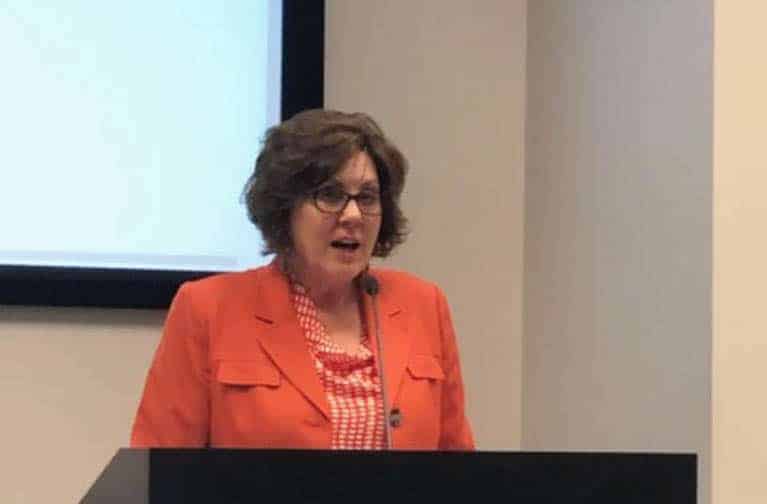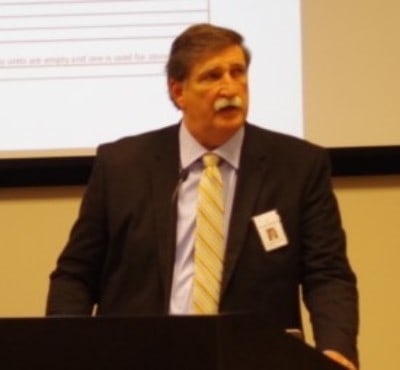

Rowan-Salisbury Schools was approved for renewal status by House Bill 986 in July 2018.
The status granted charter-like flexibility to the system and was effective immediately. The bill states the purpose of renewal is for the “local board of education to design and create a comprehensive, innovative strategic vision for sustainable school improvement and student achievement through the delivery of instruction and resources tailored to the needs of the community.”
Although a few schools in the district have begun implementing their renewal changes, plans for the system at large have been slow to come.
District Superintendent Lynn Moody got approval from the school board for her “Renewal Directional System” in February. This system identifies three coexisting paths for the “engaged learner” to follow under renewal.
These paths include academic skills, interpersonal skills, and unique life goals.
The path for academic skills states: “The learner will master fundamental standards in English, math, science and social studies while analyzing and solving real-life problems.”
In presenting the system, Moody said that more adults are fired from jobs for poor interpersonal skills than for failure to perform their jobs. She stressed the importance of developing interpersonal skills in a structured way by including them in the directional system, stating: “The learner will develop the following interpersonal skills: creativity, leadership, teamwork, civility, work ethic, communication, and problem-solving.”
Unique life goals will start in kindergarten, Moody said, and continue to gain sophistication and development as the learner grows: “The learner will set goals based on their unique smartness, career aspirations and personal passions.”
Literature from the district says that expected outcomes from renewal are:
- To attract experienced, high-quality teachers and principals to high poverty schools
- To increase teacher morale and engagement
- To provide engaging academic experiences aligned to students’ personal talents, gifts and life goals
- To develop a school system that matches the needs of a diverse community
- To initiate private investment and partnerships in public schools
Three schools embark on renewal differentiation
To date, Knollwood Elementary, China Grove Elementary, and Knox Middle School have embarked on their distinct differentiations. China Grove Elementary has been certified as an A+ Arts School, Knollwood Elementary has embraced adventure learning, and Knox Middle has become a STEM school and renamed itself Knox Center for Accelerated Studies.
Knollwood Elementary, a rural school, is 54% minority with a large Hispanic population. Principal Shonda Harrison has organized field trips for each grade level. Each field trip ties in to a subject for the grade level and also provides a memorable experience for the children. From kindergartners going fishing to fifth graders visiting the coast, each grade level has had tangible learning experiences. All principals were given some budgetary flexibility with renewal status, and Harrison combined savings from unfilled positions with donations to fund the learning experiences.
When China Grove Elementary certified as an A+ Arts school, principal Lea Anne Thomas says it absolutely changed the climate of the school. She involved parents in the decision to become an A+ school.
“’It was the best-attended parents’ night ever. More than three hundred parents participated,” she said.
Elective classes include salsa dancing, creative lettering, cartoon art, drums, gymnastics, and choreography. Academic classes integrate arts when it’s appropriate, she says, such as using Pablo Picasso’s painting style to paint portraits of American presidents. Thomas is using data to see if children are retaining their learning experiences better by using art as a tool.
Knox Center for Accelerated Studies is uniquely situated between Salisbury’s country club neighborhood and three public housing projects. At one time, the student population was a mix of students from both ends of the economic spectrum. In the last several years, however, white students have moved to private schools or the nearest charter school, located in Stanly County. Today, Knox’s population is 74.9% minority, according to district reports.
As a high-poverty school, Knox has experienced significant staff turnover for many years. The administration just received approval from the school board to implement lead teachers who make significantly more than other teachers. These lead teachers are to support their peers, and administrators look for this additional support to help stabilize turnover.
Isenberg Elementary plans for dual-language immersion
Additional schools are starting to identify their approaches to renewal. In the 2019-2020 school year, Isenberg Elementary is introducing dual-language immersion. Principal Marvin Moore has held parent interest meetings so that incoming kindergartners can register for the program. He has hired a teacher from Colombia to serve as the Spanish-speaking teacher.
Under his plan, students will alternate days between an English-speaking teacher and a Spanish-speaking teacher, while remaining on track for the standard course of study. He’s accepting 50 students to the program, with 25 in each class. While one class is in an English-speaking class, the other will be in the Spanish-speaking class. The next day, they will switch.
Moore plans to add first grade dual-language immersion in the 2020-2021 school year, second grade in 2021-2022, and so on, until he has absorbed all his elementary grades into the program. Students zoned for the school who do not wish to learn Spanish will attend regular classes. Moore has engaged Participate, Inc., a consulting firm, to guide him in the development of the dual-language immersion program.
Teacher-led design teams in every school
Each school in the district has a teacher-led design team, and the teams have been hard at work all year to identify the biggest needs of their own schools’ students and devise a renewal program to address that need.
Design teams are encouraged to visit other schools in the nation with proven success in various differentiated learning opportunities. They are also encouraged to visit businesses. District literature says, “To stay economically effective and thriving, businesses have had to change their model and mission and make internal pivots that cause disruption.”
Recommended businesses include the Civil Rights Museums in Greensboro and Memphis; the University of Notre Dame in South Bend, Indiana; the Four Seasons Hotel in Atlanta; the Louisville Orchestra, and more. These trips are referred to as “Go Visit” trips. Design teams are directed to use their trips to further identify their schools’ directions under renewal.
Likewise, members of the Rowan-Salisbury school board have been taking trips to observe effective models of differentiated learning. To date, they visited The Mind Trust in Indianapolis to learn more about how school boards govern under new models, and they visited the Lindsay Schools in California. Under the Lindsay model, students advance to new skill sets only when they have mastered current ones. There are no age-related grade levels, and no A through F grades are administered. As recently as five years ago, some Lindsay graduates could not read a newspaper. Today, proficiency in English and math are climbing.
The RSS district has scheduled an invitation-only reveal event for Friday, May 17. Although the event is only one hour in duration, each school’s unique direction will be revealed to attendees.
Potential school consolidation looms
Meanwhile, in December 2018, the district proposed school consolidation because of its inability to support 35 schools with its budget. According to the district, eleven of the 35 school buildings are older than 50 years and present an additional maintenance burden.
The school board has discussed which schools to close several times since December but has made no decisions. After scheduling public hearings to close two elementary schools, Faith and Enochville, the board canceled the hearings and has not scheduled further discussion on consolidation at this time.
Moody stated that, despite uncertainty about the future of the older schools, every school is proceeding with plans for its role under renewal.
The enabling legislation requires the district to measure the effectiveness of renewal status, and Moody has engaged The Friday Institute at N.C. State University to develop an evaluation system. She has worked with the governor, Senate, and House to allocate $300,000 for the consultants.


